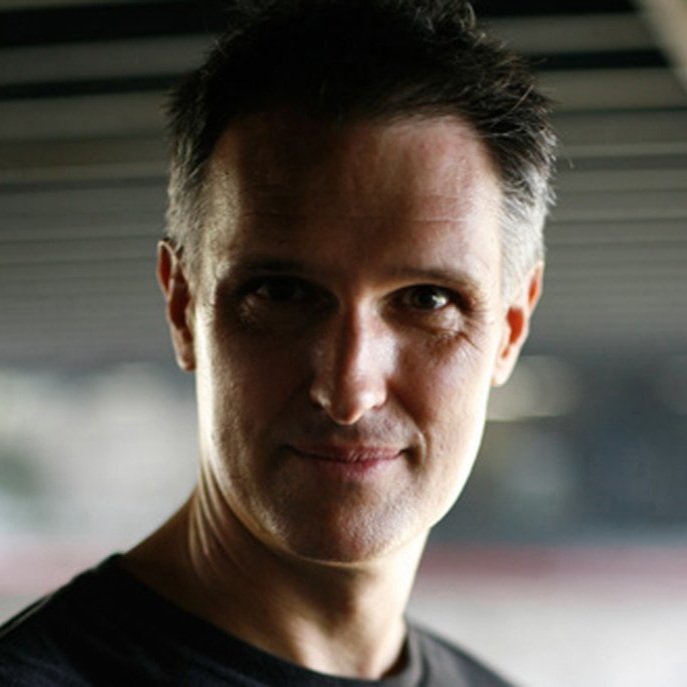
S1E54 - Iain McCaig - Storytelling from the Chocolate Box
Why are some of us drawn to scary stories? “Because we want to believe that we are strong enough to survive being scared.” In peeking into that dark side, we cultivate empathy. Few have had a bigger role in constructing imaginary worlds than renowned concept artist Iain McCaig. His work is truly the stuff of legend. We found his zest for illustration, telling stories, the creative process and living a creative life to be nothing short of infectious. Accountable only to his own validation, McCaig is an exemplar of living fully and illuminating a path for the rest of us to follow. We spoke of his illustrious career and his esteemed colleagues, as well as his myriad creative projects past, present and future. Unencumbered by a quest for truth, McCaig cannot NOT tell stories that make people smile. Despite, or perhaps because of, being left to live alone at 14 and surviving a heart attack, he is only afraid of being afraid. He left us with an irrepressible urge to draw our own stories - a skill, he insists, that we all possess. Join us to catch that itch.

S1E53 - Norman Solomon - Shining Light on Inconvenient Truths
We met with Norman Solomon, co-founder of RootsAction.org and executive director of the Institute for Public Accuracy, to shed light on what we are NOT told about our military involvement around the globe. One cannot fathom the human toll of 4.5 million lives lost directly and indirectly from US military action since 9/11. Solomon implicates corporate media and Hollywood in obfuscating the real human cost, especially of innocent non-combatants. To illustrate this point, he explains that for every innocent US life lost in the World Trade Center attack, the US killed 100 innocents in Afghanistan, Iraq, and elsewhere. Why do we value one human life more than another? While hopeful of a time when humanity can rise above violent conflict, Solomon principally advocates for more truthful and accurate disclosure in place of the terrifyingly efficient propaganda machine that erases this awareness from the public consciousness. The glorification of war and the absence of rigorous discourse before military action all contribute to this. Decentralized non-corporate journalism may hold a key. Newsrooms themselves have become an endangered species. Can we build movements and sensibilities that say “war first” is unacceptable? To quote Antonio Gramsci, “It is time for pessimism of the intellect, and optimism of the will.” Join us.

S1E52 - Geraldo Rivera - For the Record
We talked to Geraldo Rivera about a range of topics, including much that is in the news and on Fox News, where he was for twenty-three years until recently. Leadership there is soon to change from Rupert Murdoch to his son Lachlan. What does Geraldo think about that shift and what are his thoughts on the so-called "fair and balanced" news network? We talked to him about his career and his politics and his long-time friendship with Donald Trump. All of that and more were up for discussion as were his many feuds and controversies. Join us!
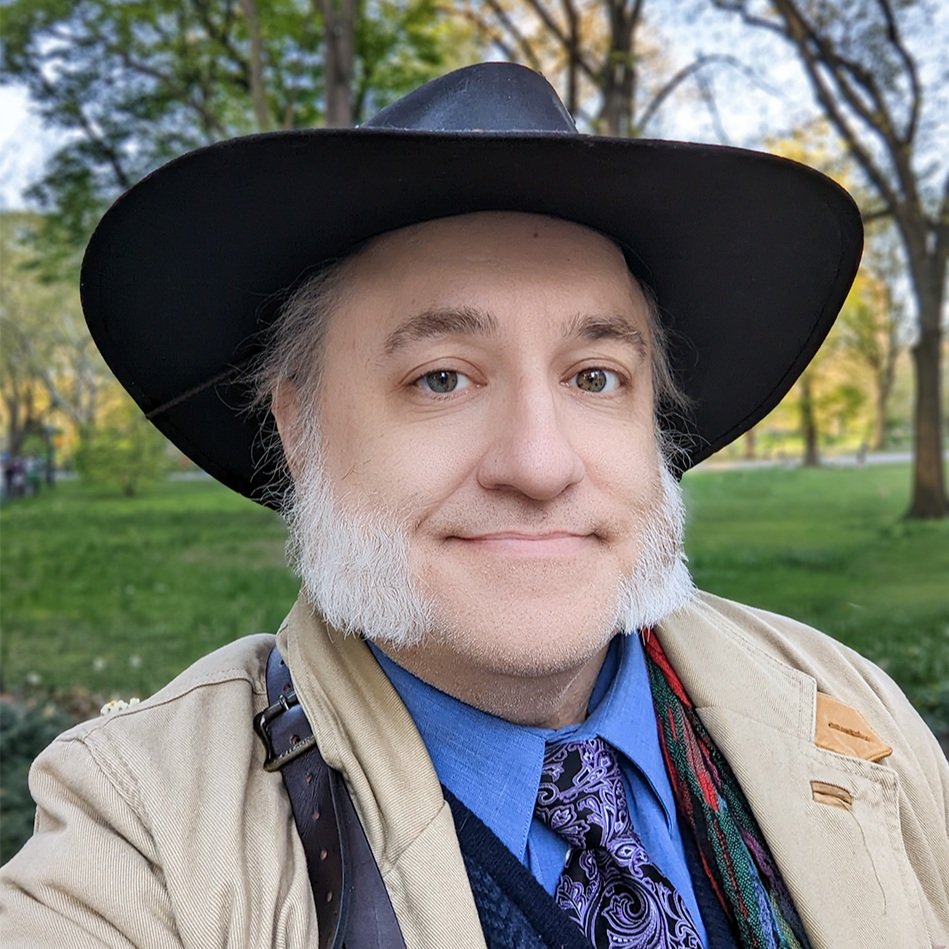
S1E49 - Andy Ihnatko - The Balance of Technology
We met with tech journalist and commentator Andy Ihnatko for a big picture assessment on technology’s influence on society. Ihnatko is riveted by this moment — when the precedents of our society’s origins and founding documents failed to envision the questions and ethical quandaries posed by Artificial Intelligence. We must balance the opposing forces. Privacy, accuracy and data usage are challenged in unforeseen ways. We cannot deny that more work will be done better as AI gets layered into the existing tools that we already use to further boost our productivity and creative expression. Regulation too soon can crush new industries, but internal industry researchers who inform voluntary guidelines can be influenced or silenced. Giants like Apple, Google and Microsoft can bring an ever-improving experience to the consumer, but when do they cross the line and hurt the consumer through their market power? Kids can discover a vast world beyond their borders, but tech can also negatively impact their brain development. The Internet brings us more ways to live and work, but the Digital Divide and surveillance makes the powerless even more powerless. Ihnatko echoes a sentiment we often hear on Grey Matter, that we must practice deep interest and care for our fellow humans. Let us remain vigilant that we’re using tech to solve a problem or create an opportunity. Join us.
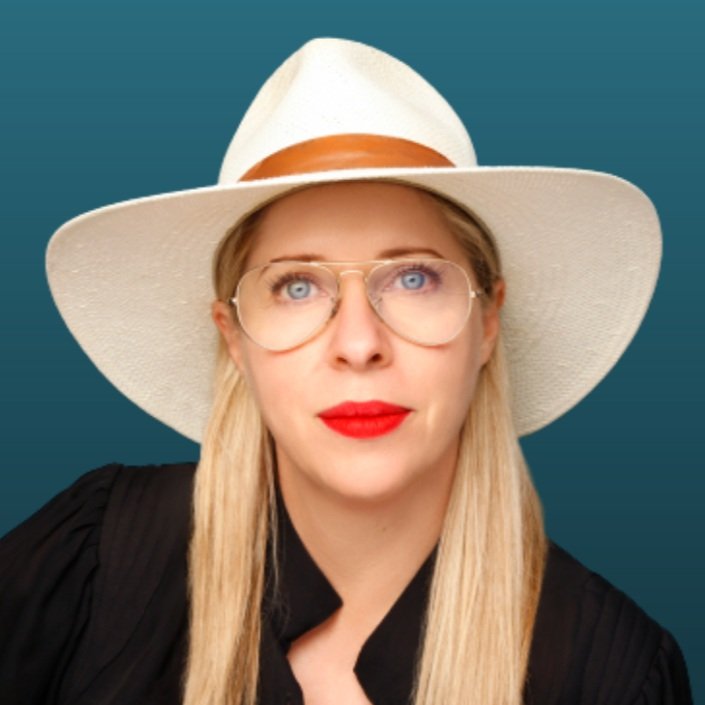
S1E48 - Tiffany Shlain - Lead Not by Fear
In troubling times, the voice of articulate optimists can lift the spirit and light a way forward. To this end, we met with feminist, movie maker, artist, thinker and founder of the Webby Awards, Tiffany Shlain. As one who made her own documentary film, “The Tribe,” on Barbie and Jewish Identity 18 years ago, we began with her reflections on the recently released Barbie movie. We transitioned into several of her creative projects, including Dendrofemonology, a Feminist History Tree Ring that recounts the “herstory” of women who initially enjoyed 10,000 years of power and goddess culture. The intersectionality of her activism seeks rights for all humans because, in the end, Shlain believes in humans and in our ability to find the good in an ever-changing world. Shlain recommends navigating this unfamiliar territory with science, collaboration and grace. Technology is an extension of us, and while it can be used for ill, its powers for good emerge from pushing past our fear and engaging with it. The Webby Awards highlight this positive dimension. Her inspiration comes from ideas that stand the test of time — like a day of rest. Already we find that kids are smarter, and discovering new ways to become themselves. Her next project on neurology will debunk many common metaphors about teenagers, who she sees as “emotionally brilliant.” We reassert that children are our legacy. In closing, we remember her father, Leonard Shlain, who encouraged us to think big and be present. Join us.

S1E47 - Alice Waters - Nourishing All
When we think of reconnecting to ourselves and to our society, the answers may lie in the simplest of things. To that end, we met with food revolutionary and founder of Chez Panisse - Alice Waters, to return to our roots. At the start of her journey, Waters embarked on an improbable quest to reconnect us to ourselves through delicious food and the organic and regenerative husbandry of the earth. Moving from her kitchen table, to the restaurant, to prison gardens, to gardens for the homeless and on to a national network of Edible Schoolyards, Waters found nourishment for our bodies, our spirit, our society and our planet. Listen in to hear how “we are what we eat” might make us the best we can be. Join us.
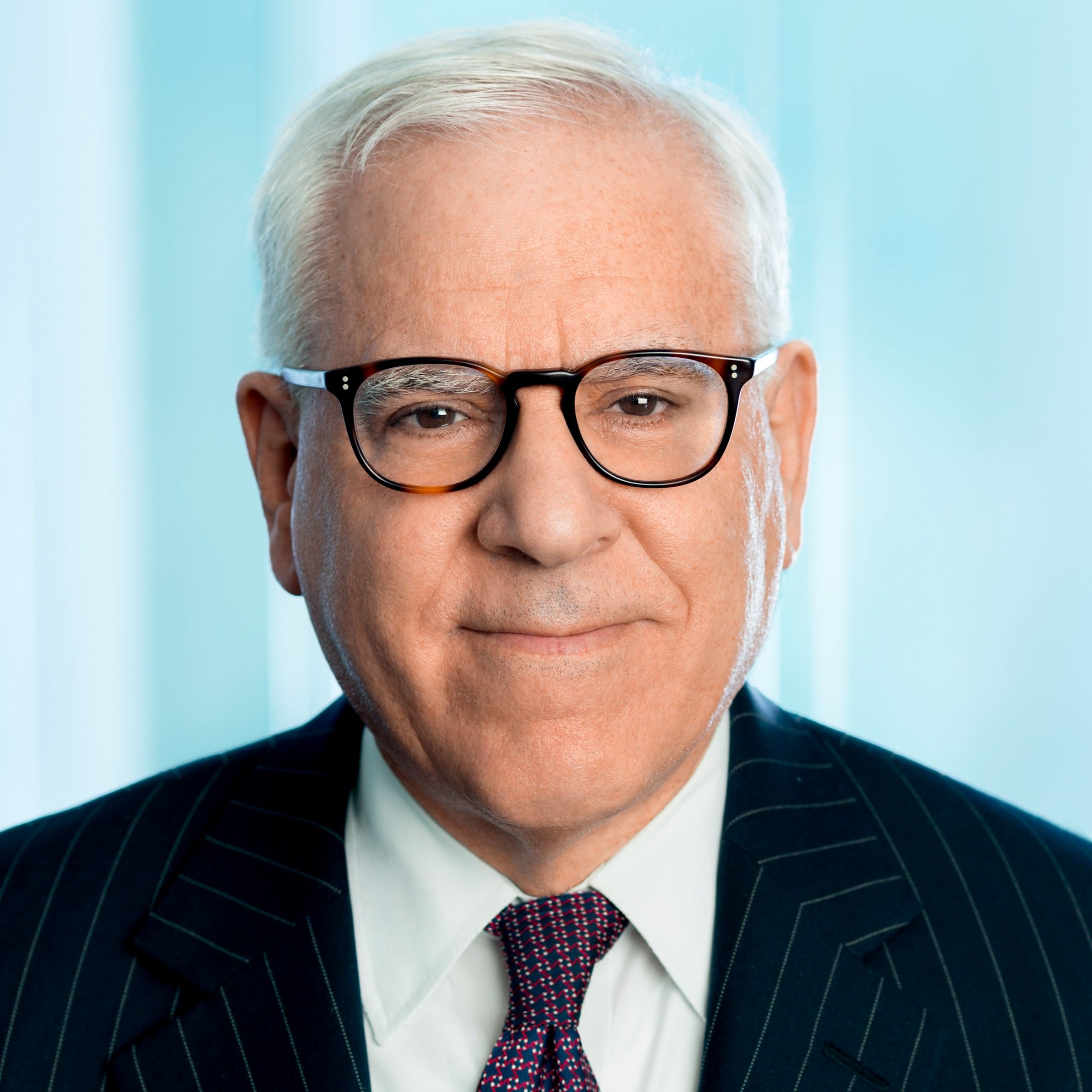
S1E44 - David Rubenstein - History Through Icons
We met with business magnate and patriotic philanthropist, David Rubenstein, to discuss his new PBS series - Iconic America. This entertaining and informative eight-part series is an exploration of our glorious and inglorious history as symbolized by eight key American icons. For students of history, our conversation illuminates some of the key stories revealed in the series, as well as some of their backstories and a little inside baseball. For fans of David Rubenstein himself, our conversation dipped into his origins, his motivations, his successes and his aspirations. Rubenstein is a believer and a beneficiary of the “American Dream,” and his philanthropy supports this country’s further perfection of the dream. Convinced that we ignored George Santayana’s advice and are making some of the same mistakes of our past, Iconic America is an enticing invitation to dig deeper and learn more. Join us.
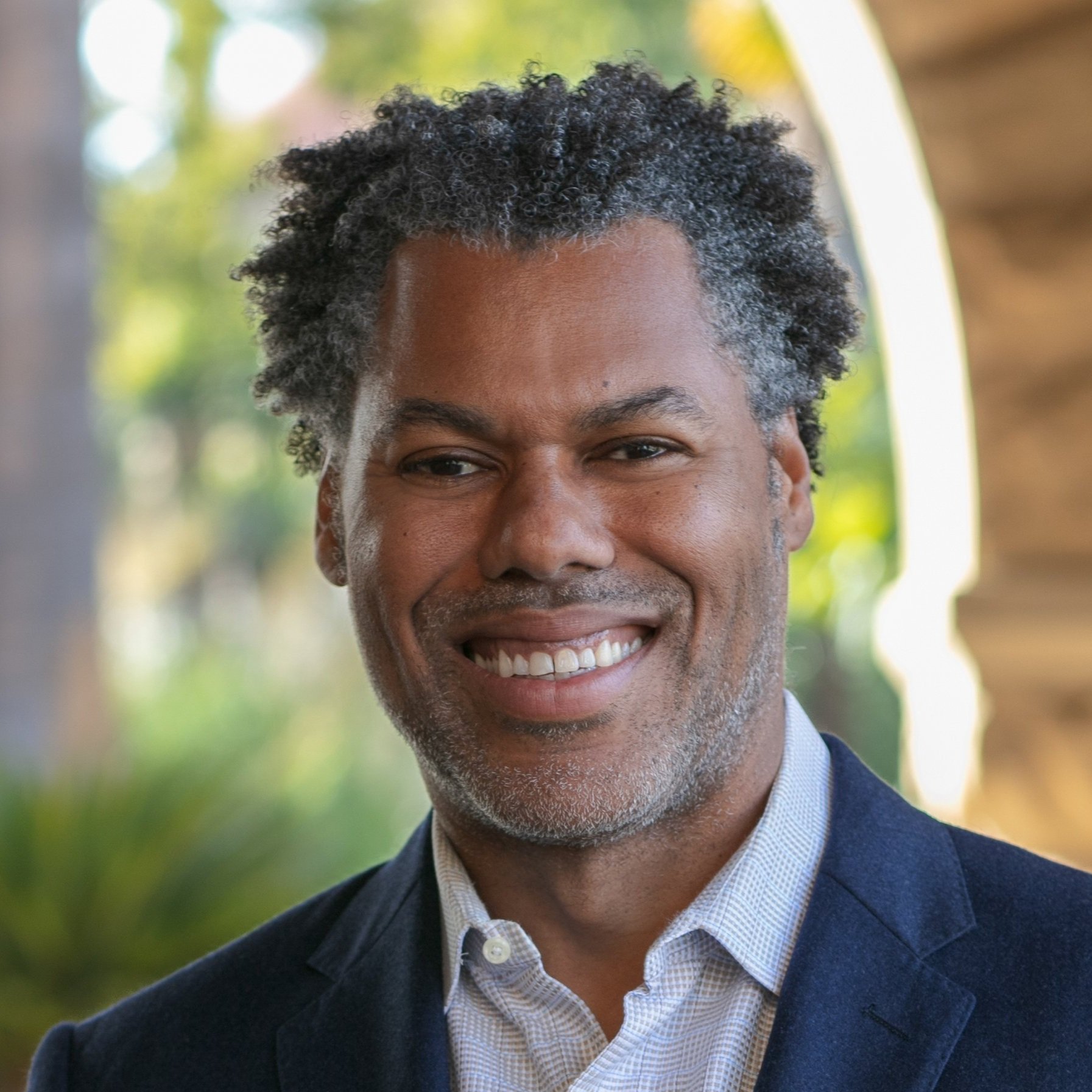
S1E43 - Brian Lowery - Your Chameleon “You”
We met with social psychologist and business school professor Brian Lowery to explore the foundations of the self - nothing short of what makes us who we are. Lowery argues that our social communities construct us, but that there isn’t a single “genuine self.” Rather, we are the composite of all the masks we wear. This paradox reveals a deep tension between the structure we seek because we like to think the world is stable and coherent, and the complete freedom of becoming our more expansive selves through broader relationships. Lowery challenges Maslow to say that meaning is a fundamental human need as critical as basic safety. We want to be seen, and we want to have what is reflected back by others match how we see ourselves. When we talk about the self, are we talking about the physical self of cells, hormones and DNA, or are we actually talking about the meaning attached to those things? If the latter, those exist in our social relationships. Prepare to question your assumptions. Join us.

S1E42 - Pamela Paul - The Creative Act of…Reading
We met with columnist, journalist, editor and author Pamela Paul for a conversation about her life of words. We spoke of her career at the New York Times, and surveyed the topics of her columns and eight books. At the outset, it seemed that our conversation would focus on writing. Paul has written extensively on numerous thought-provoking and controversial topics, and she is equally eloquent speaking extemporaneously, especially on consumer culture or on a topic from a recent column or a book she happens to be reading. As we delved into her book “How to Raise a Reader,” the questions from our audience began to flow in. By the end, we found ourselves in a deep reflection on the writer’s creative counterpart - the reader. The hour flew by, and left us with a renewed inspiration to pick up a book. Join us.
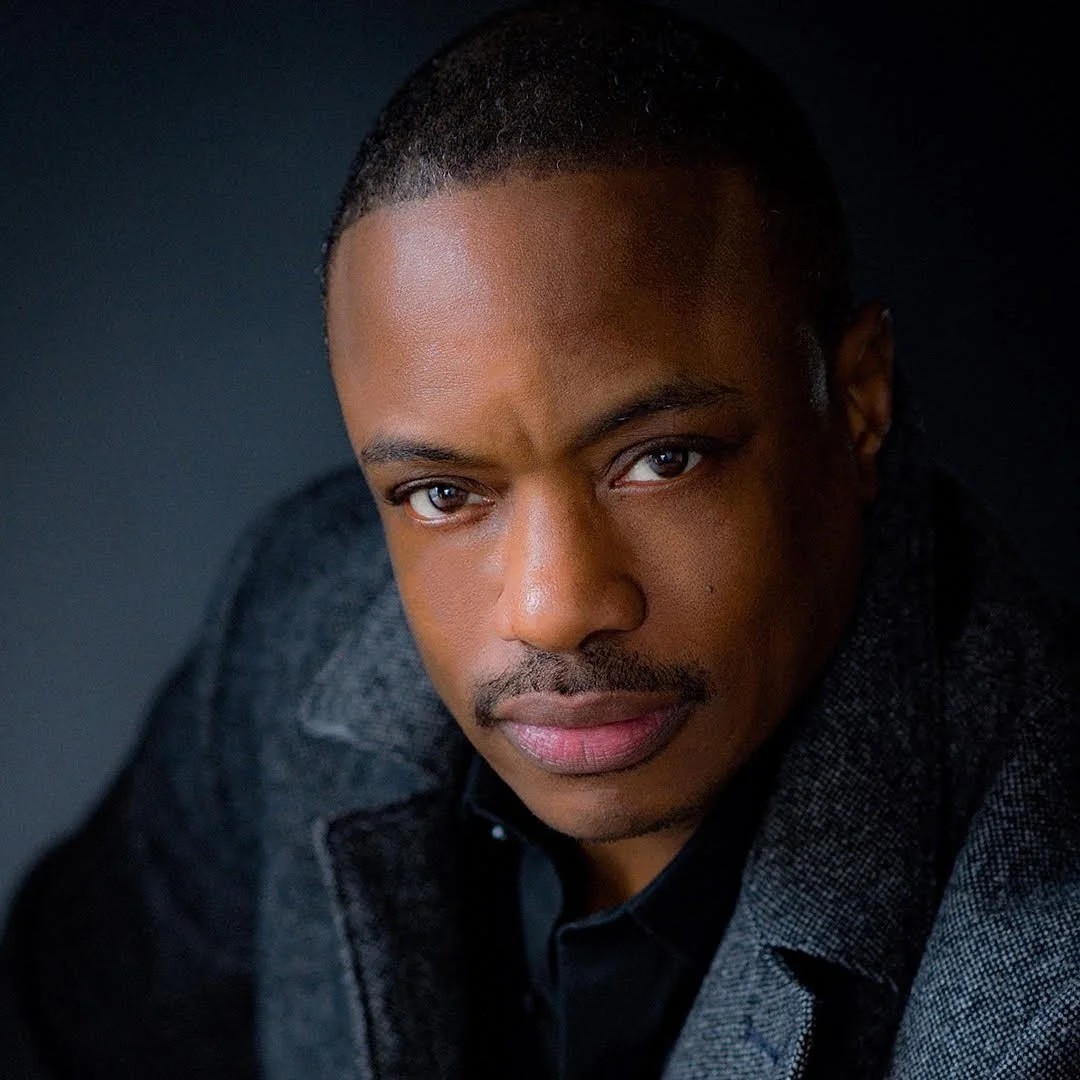
S1E41 - Frederick Van Johnson - Punishing Pixels for a Better Story
We met with photographer and podcaster Frederick Van Johnson to learn about the latest developments in photography and philosophize with him about the outsized role it plays in our evolving world. Van Johnson contends that photos like Jeff Widener’s 1989 shot of Tank Man in Tiananmen Square have always had the power to communicate immense meaning in the glance of an eye. A photo can tell a story and can change minds. Advancements in photography are expanding access to the stories that need to be told. And yet, a photo is half the capture of the image, and half the “performance” of modifying the image to tell the stories that want to be seen and heard. Can we assume that any photo today reflects the “truth?” No. But this science fiction future need not be doom and gloom if we are solving for humans and trying to make the world better for humans. AI and technology advancement is not a zero sum game. It is always changing and growing, as are we. The key is to see where things are going and press forward smartly to take advantage of the bigger “wrenches” that are now within reach. We can do more with less, and live more meaningful, human lives. Join us.

S1E40 - Peter Kramer - Fiction in an Age of Lies
We met with psychiatrist, professor emeritus and best selling author, Peter Kramer, to explore depression, antidepressants and his fiction and non-fiction body of work. His most recent novel is Death of the Great Man, a political who-done-it satire about the improbable clinical relationship between a narcissistic despot and his psychotherapist. Our conversation covered equal parts general psychiatry and book discussion. His clinical work has served and shaped Kramer’s work as a novelist. As Jennifer Egan described in an earlier Grey Matter episode, Kramer sees literature as a unique vehicle for putting ourselves into other peoples’ shoes. This is similar to the task of the psychotherapist, who seeks to assist patients by getting into their minds to spur them to self-examination. Spoiler alert - The Great Man is fashioned after Donald Trump. Among the many dimensions of the book, it wants us to think about standing behind and accepting someone who uses lying as a prime political technique. Other themes are selfishness versus selflessness, intimacy versus autonomy, death, truth, and the perils of giving way to despotism over the long term. Woven throughout the conversation is commentary on the efficacy of antidepressants and their impact on personality, depression as a multi-system disease, “retirement” when still working, psychiatrists giving advice, self-assessment, non-attachment, the Media’s portrayal of mental health, psychiatric diagnoses using bots, the fluidity of diagnoses, Freud, sidelining intellectuals, and the difficulty of “out-trumping” Trump. Join us.
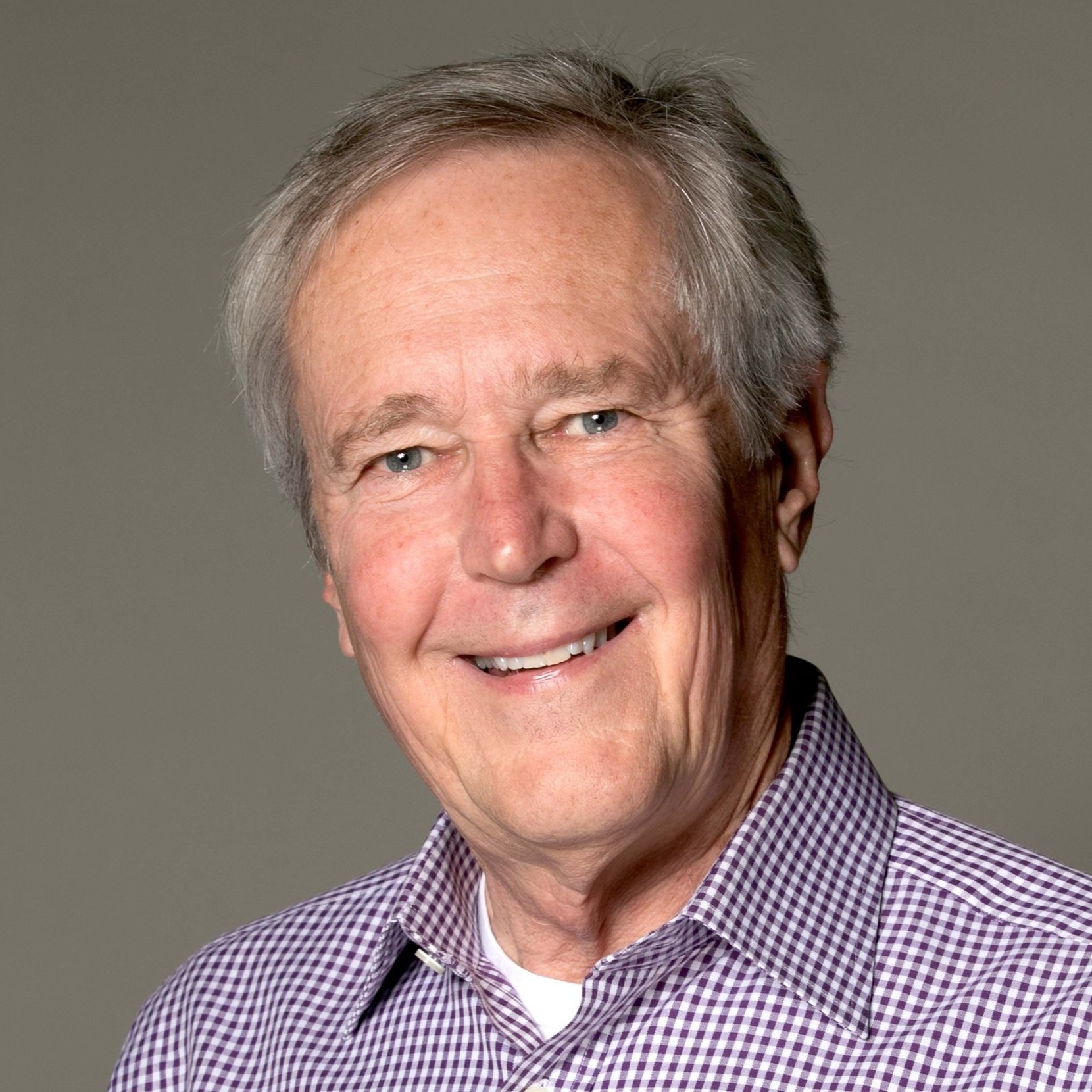
S1E39 - James Fallows - Keeping a Level Head
We met with one of the preeminent figures of American journalism, James Fallows, to discuss equal parts world affairs and the craft of journalism. Fallows brings the perspective of a lengthy and illustrious career covering a vast array of domestic and international issues, including politics, technology, Asia, aviation and hometown America, to name a few. We touch on all of these to get his perspectives on Trump’s presidency and current legal challenges, AI, social media, US/China relations, working as Carter’s speech writer, the news industry in general, and much more. A believer that “transparency is the new objectivity,” Fallows openly acknowledges upfront the aspects of his background that are potentially relevant to his views. While today there are so many things happening at a distance that alarm us, Fallows ends by reminding us that he consistently finds great resilience and possibility when he goes local to get a closer look. His observations are informative and sober, but ultimately optimistic. Join us.
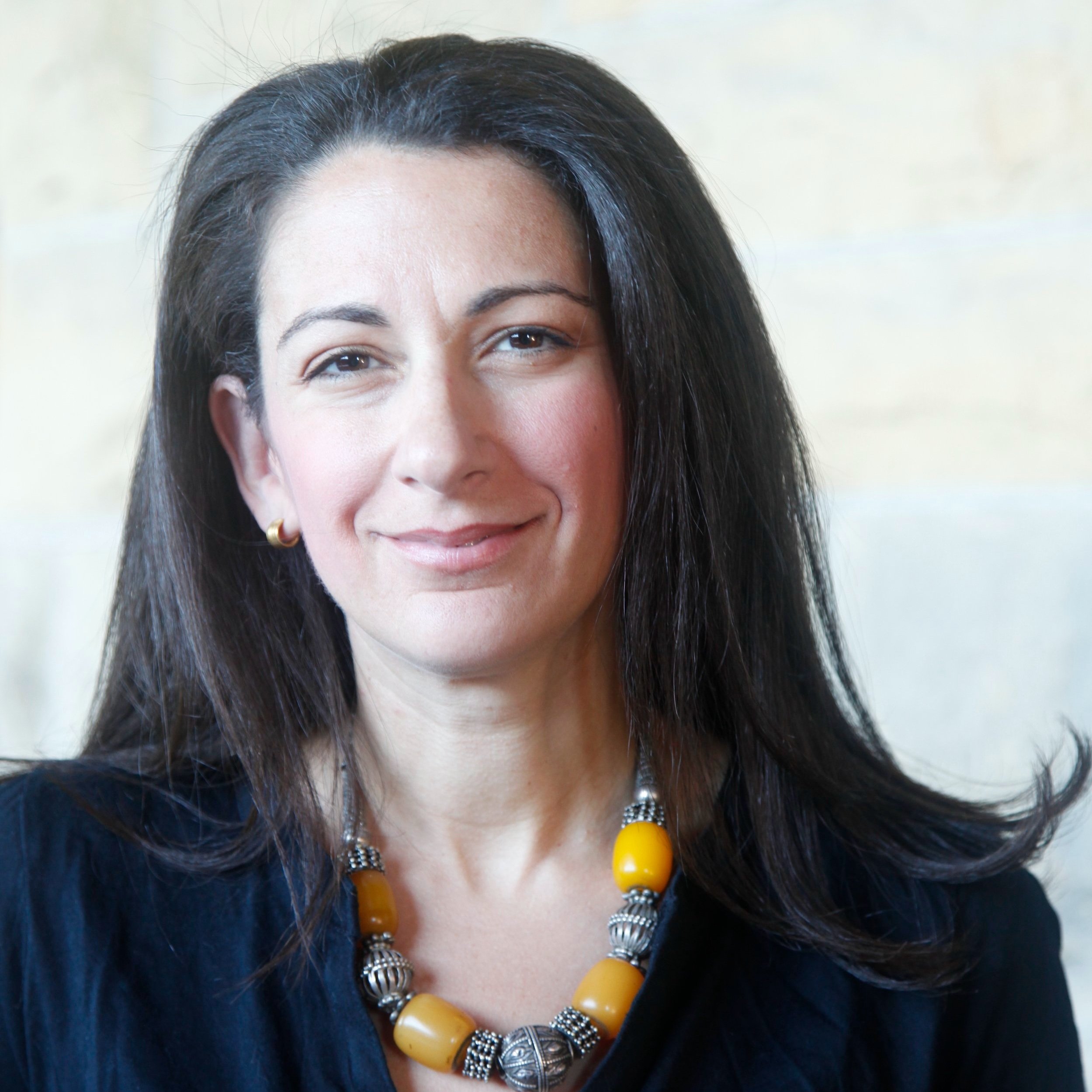
S1E37 - Janine Zacharia - Realpolitik, Media Control and Democracy’s Decline
We met with renowned Middle East correspondent and journalism lecturer, Janine Zacharia to do a round up on Middle East current events. The scorecard is sobering. We are at an inflection point. While popular attention turns to Russia and China, press freedoms across the region continue to decline. The circulation of deliberately false information is a central cause. This fuels rampant political polarization, which in turn helps autocrats win. Violence and oppression against journalists is on the rise. Our own internal political dysfunction makes coherent foreign policy nearly impossible. As America’s standing and influence in the region wanes, China (who requires no standards for human rights or press freedoms) is more than happy to fill in our vacuum. So Zacharia asks an existential question - how might we restore respect for fact-based news? This is the lifeblood of functioning democracy. There are no easy answers, but she helps us see that this one leverage point has implications for the entire globe. Join us.
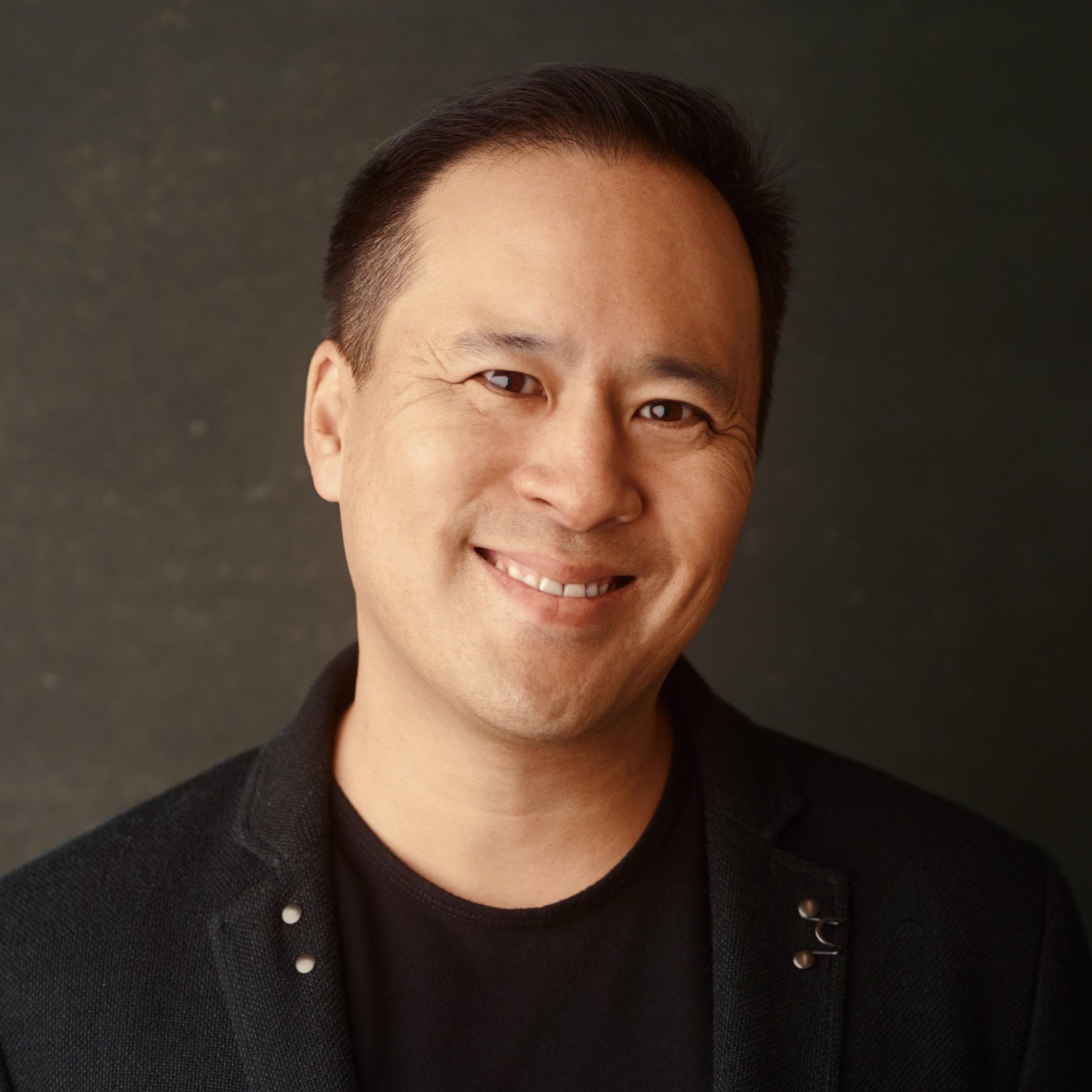
S1E35 - Jeremiah Owyang - Becoming More Human?
ChatGPT took the world, and our imaginations, by storm when it became the first consumer app to reach one million users in five days - the fastest in history. The opportunities and the threats are boundless, but we don’t know what we don’t know. We invited technology analyst Jeremiah Owyang to help us sift through the reality and the hype. Owyang minces no words when he asserts that AI will be the most consequential technology to debut in our lifetimes. The upheaval and displacement will be great, but it will also enable us to reset our relationship to work towards what is inspirational and enlightening. Will AI help us become more human? How will we protect ourselves from bad actors? How will we confirm what is true? How must society adjust? How close is AGI - Artificial General Intelligence - to becoming on par with human intelligence, and how will we know? Will our behavior change if AGI learns how to treat us by how we treat others? There’s no squeezing the genie back into the bottle. Join us for a peek of the brave new world that lies ahead.
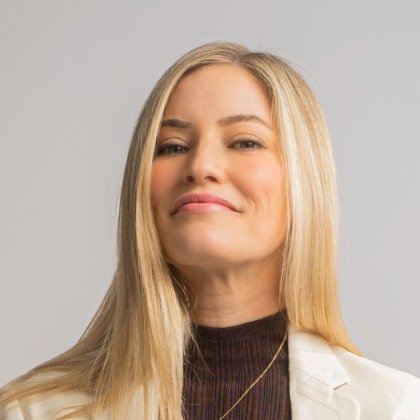
S1E33 - iJustine - The Fire and the Tao of Tech
When British novelist Robert Graves wrote “I Claudius” about the fourth Roman Emperor, he set the stage for our interview with Justine Ezarik, better known as iJustine, who is to me “The Empress of the Internet.” She is a content creator for nearly two decades who has over a billion views on her YouTube channel, and even has young fans who were not yet born when their parents started watching her. We sought to understand the personal and professional trajectory that led to her becoming such an authority on technology and an inspiration to so many. We learned that passion and balance are central themes of her life. Firstly, technology is iJustine’s first love. She observes that, “Today’s technology is so accessible that we can do really anything we want, if we have the will to do it.” This promise lights her up, and powers the fire of her hard-driving work ethic across all her varied interests. Secondly, there is balance - the Tao - the middle way between two extremes. Justine works hard, but also plays hard. She used to be very public about her life, but has now dialed that back to reclaim some of her life for herself. Consequently, she rediscovered authentic fun from what had become “fake fun.” There are troubling aspects about social media, but so too there are amazing aspects that grace those who can strike the balance and curate their consumption carefully. The same goes for Artificial Intelligence (AI) - there are negative uses while at the same time there are wondrous uses. She cautions against becoming too alarmist. Seeking to avoid labels, stay positive, channel creativity, champion access and maintain balance, iJustine - The Empress of the Internet - shows the way. Join us to learn how she does it all.

S1E31 - Michael Ellis - The Miracle of It All
Join us for a globetrotting “memory lane” walk-a-bout through naturalist Michael Ellis’s countless national and international adventures. These recounted travels feature spectacular natural highlights, present challenging ethical quandaries, and inspire deep metaphorical reflection on our lives in general. Ellis’ favorite international destinations are the Serengeti - birthplace of humanity, the gorillas of Rwanda, Bhutan, Namibia, the South Georgia Islands, the sharks of Palau, the jaguars of the Pantanal and the ecosystem diversity of Brazil’s Mato Grosso. Closer to home, The Cedars in Sonoma County, mountain biking through Canyonlands or Santa Rosa, the whales off the California coast, chipmunk biodiversity in the Sierras, the simultaneous macro and micro expansiveness of the Mojave desert, and the sanctum of the redwoods. Contained within are the largest, oldest and most exotic lifeforms imaginable. How do we ethically appreciate these miracles? Ellis points out that we can love these places to death, smothering them with too much tourism or generating excess carbon in our travel. At the same time, tourism provides the strongest economic incentive for local peoples to protect their natural treasures, without which habitat becomes farmland and bushmeat becomes dinner. There are no easy answers. The majesty of the natural world invites us to release our expectations, be here now, and pause to be amazed by the miracle of it all.

S1E30 - Rick Hanson - Rewiring Our Circuitry
We met with Rick Hanson, best-selling author, Senior Fellow of UC Berkeley’s Greater Good Science Center and founder of the Global Compassion Coalition, to review what neuroscience tells us about how to rewire our mental circuitry for greater physical and emotional wellbeing in the face of the inevitable negative in our lives. Hanson’s latest book, Making Great Relationships, is the launch point for our discussion, but we meander from the microscopic within to the infinite of the Big Bang Universe in our explorations of human potential. How and what is within range as we start on this journey? Is unconditional lovingness a reasonable destination? Can our brains open our hearts? How do we skillfully counteract our negative bias? How do we stop seeking approval? Can we be loyal to ourselves? How do we repair our relationships? Where does aggression fit into this picture? How does imagination shape reality? How do we contend with impermanence? Can we create a world where millions of people and organizations experience community with each other, work for the common good, and drive systemic change? Hanson is certain to “make his team proud” with the legacy of love that he has helped to build. The energy of our conversation is intimate and magnetic. Spare an hour to be struck by the human potential of all that is within reach, wherever we happen to be standing. Join us.

S1E28 - Jennifer Egan - Reading Deeply
We met with one of the foremost novelists of our time and Pulitzer Prize winner, Jennifer Egan, to discuss the medium of fiction, the novel, her process, her works and the role of the novelist in democracy writ large. In an age where AI has begun to encroach on seemingly sacrosanct domains of human endeavor like creative writing, Egan gives us hope that writing from human imagination will forever give us unrivaled access to the mind of another person. In what became a masterclass in Egan’s personal writing style, she illuminated how her own improvisation allows her to channel all the forces that exist around her and operate through her. The novel demands that we resist the forces of distraction that dilute us. Fiction delivers compressed knowledge, and preserves our mental agility and our ability to question authority. It is not only entertaining, it is a pillar of a healthy democracy. In her leadership of PEN America, she saw first hand how threatening fiction and the novel can be to autocratic regimes. While indifferent to literary reviews, Egan adores her readers and all they teach her. Most captivating are Egan’s methods of tapping into her unconscious and her imagination — the wellspring of her career. Find renewed determination to read deeply by listening deeply to our charming guest, Jennifer Egan. Join us.

S1E27 - Jack Kornfield - Embodying Graciousness
We met with one of the premier thinkers and teachers of our time, Jack Kornfield, to discuss how we can reclaim our humanity in isolated times, and find an inner state of well-being in the face of our greatest hardships. His sage perspectives on difficult questions were immediately centering and comforting. We touched on advice for living - cultivating compassion, awe and wonder; distinguishing empathy from compassion; navigating compassion fatigue; and finding it even for those we might not like. We explored how building our ability to be deeply aware of our present moment expands our capacity and health. Managing our emotions and keeping our cool is a skill that has helped even the most type-A’s among us be more effective. We discussed how to respond when we witness injustice without contributing to the atmosphere that created the injustice in the first place. We covered what it means that “pain is inevitable, but suffering is optional,” and so much more. Each and every turn in the conversation revealed a new nugget of wisdom for living fully, happily and peacefully. It was an hour beautifully shared. Join us.

S1E26 - Brian Copeland - Life in the Funny Lane
Humor is not just fun and games. For Brian Copeland, award-winning actor, comedian, author, playwright and talk show host, it started as his best defense from bullying on the playground growing up as an African American kid in one of the most racially redlined suburbs in America. Brian went on to wield humor in artful ways throughout his career to tackle some of the thorniest topics of our times in his work, and specifically in his popular one-man-show “Not a Genuine Black Man.” Join us as we explore the mechanics of humor - the creative process, what makes a joke funny - Copeland’s encyclopedic memory of his remarkable journey through the entertainment world, as well as his reflections on the distance we’ve come and have yet to go to collectively acquire genuine understanding and empathy for each other. Join us.



